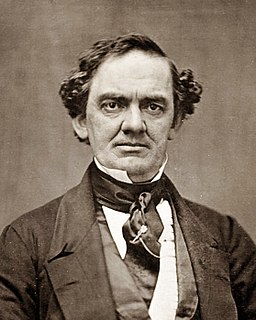A Quote by Henry David Thoreau
This fond reiteration of the oldest expressions of truth by the latest posterity, content with slightly and religiously retouchingthe old material, is the most impressive proof of a common humanity.
Related Quotes
Euphonic and harmonious expressions, forcible and just expressions, profound and comprehensive expressions, and especially apt and witty expressions, each have their specific influence upon different minds, and their common influence upon all minds.... It is therefore high time our most valuable aphorisms and paragraphs were put in order for frequent perusal, and for handy reference, as the circumstances of life call up subjects.
The wildest dreams of wild men, even, are not the less true, though they may not recommend themselves to the sense which is most common among Englishmen and Americans to-day. It is not every truth that recommends itself to the common sense. Nature has a place for the wild clematis as well as for the cabbage. Some expressions of truth are reminiscent,--others merely sensible, as the phrase is,--others prophetic.
Ignorance is in relationship to content; it is not just a spirit of ignorance. In verse 21 it speaks of "the truth in Jesus." Truth is content, truth has something to do with reason. Truth has something to do with the rational creature that God has made us. The dilemma here in the internal world is not just some sort of grey fog, it is in relationship to content.
Is it not amazing that at a time when the rights of humanity are defined and understood with precision, in a country, above all others, fond of liberty-that in such an age and in such a country we find men professing a religion the most humane, mild, gentle and generous, adopting a principle as repugnant to humanity as it is inconsistent with the Bible, and destructive to liberty?


































